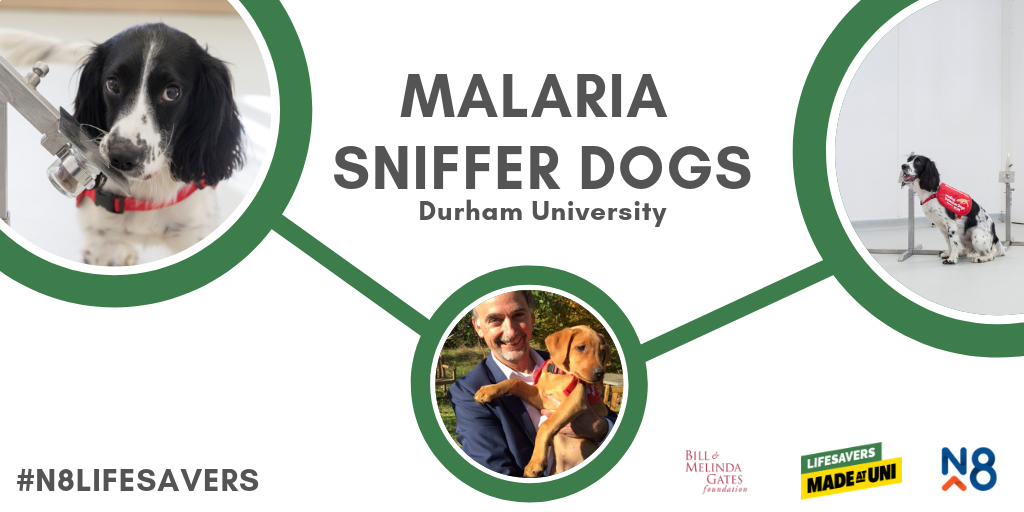
Sniffer dogs could be used in the fight against malaria thanks to research being carried out by Professor Steve Lindsay
Following a trip to the United States, Professor Lindsay at the University of Durham was inspired to research sniffer dogs after watching the dogs in action at US airports.
“Some years ago I visited the States and arriving at an airport I was astounded to see a sniffer dog looking for fruit and vegetables,” Professor Lindsay said.
“So I thought, ‘Well, if a dog can smell fruit and vegetables, could they smell people infected with malaria?’.
Professor Lindsay
The aim was to train dogs to detect malaria in people by their scent, to prevent the spread of the disease and help infected people to get quick and effective treatment.
The research project began by asking schoolchildren in Gambia to wear nylon socks overnight and give a blood sample to be screened for signs of malaria. The socks were then frozen and sent to the UK where dogs were trained over several months to detect whether the socks had been worn by children with malaria or not.
The dogs were able to correctly identify 70% of the malaria-infected sock samples and correctly recognised socks worn by uninfected children in 90% of cases.
“While our findings are at an early stage, in principle we have shown that dogs could be trained to detect malaria infected people by their odour with a credible degree of accuracy”
Professor Lindsay
The aim is to one day use the specially trained dogs in airports to find carriers of malaria in an effort to eradicate the disease.
The research projects involves the charity Medical Detection Dogs, the London School of Hygiene & Tropical Medicine, the University of Dundee, the Medical Research Council Unit The Gambia at the London School of Hygiene & Tropical Medicine, and the National Malaria Control Programme, The Gambia. It was funded by the Bill & Melinda Gates Foundation.
Made at Uni, following on from their launch campaign highlighting the impact universities have had on people, lives and communities, released their brand new campaign, ‘Lifesavers’ in May 2019. This campaign highlights 100 universities across the UK who are saving lives and keeping us healthy through key research.

